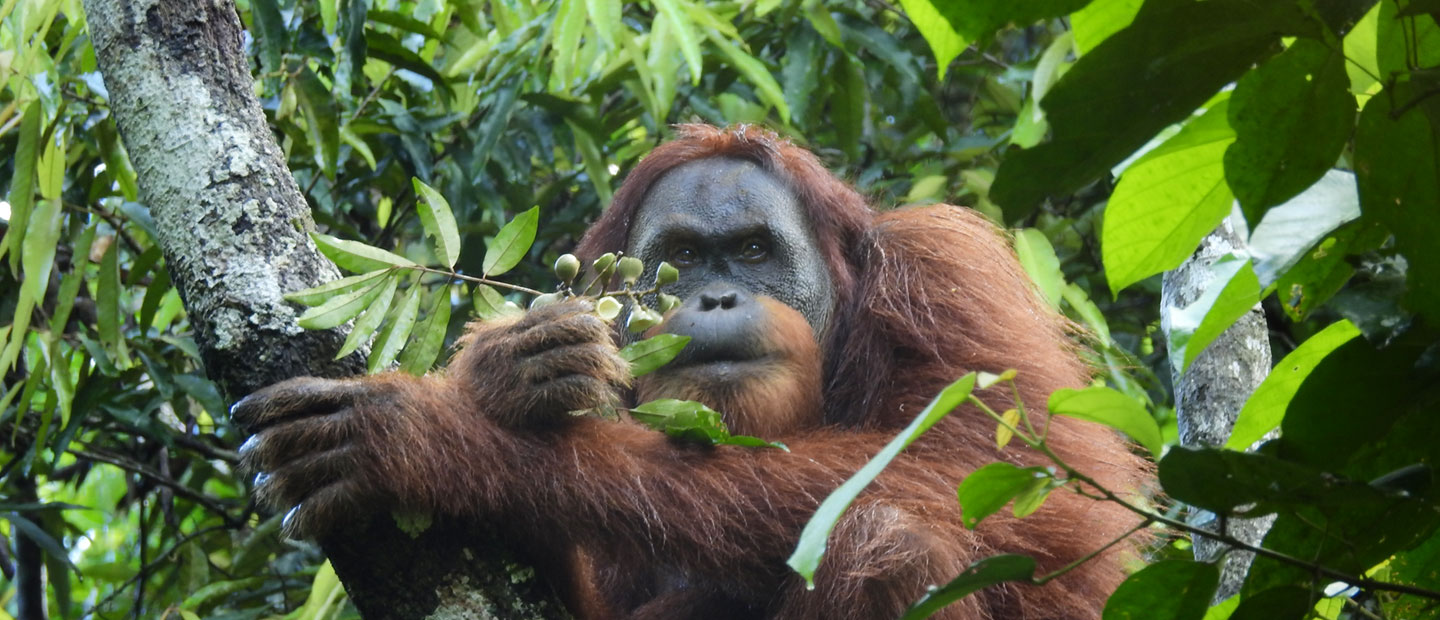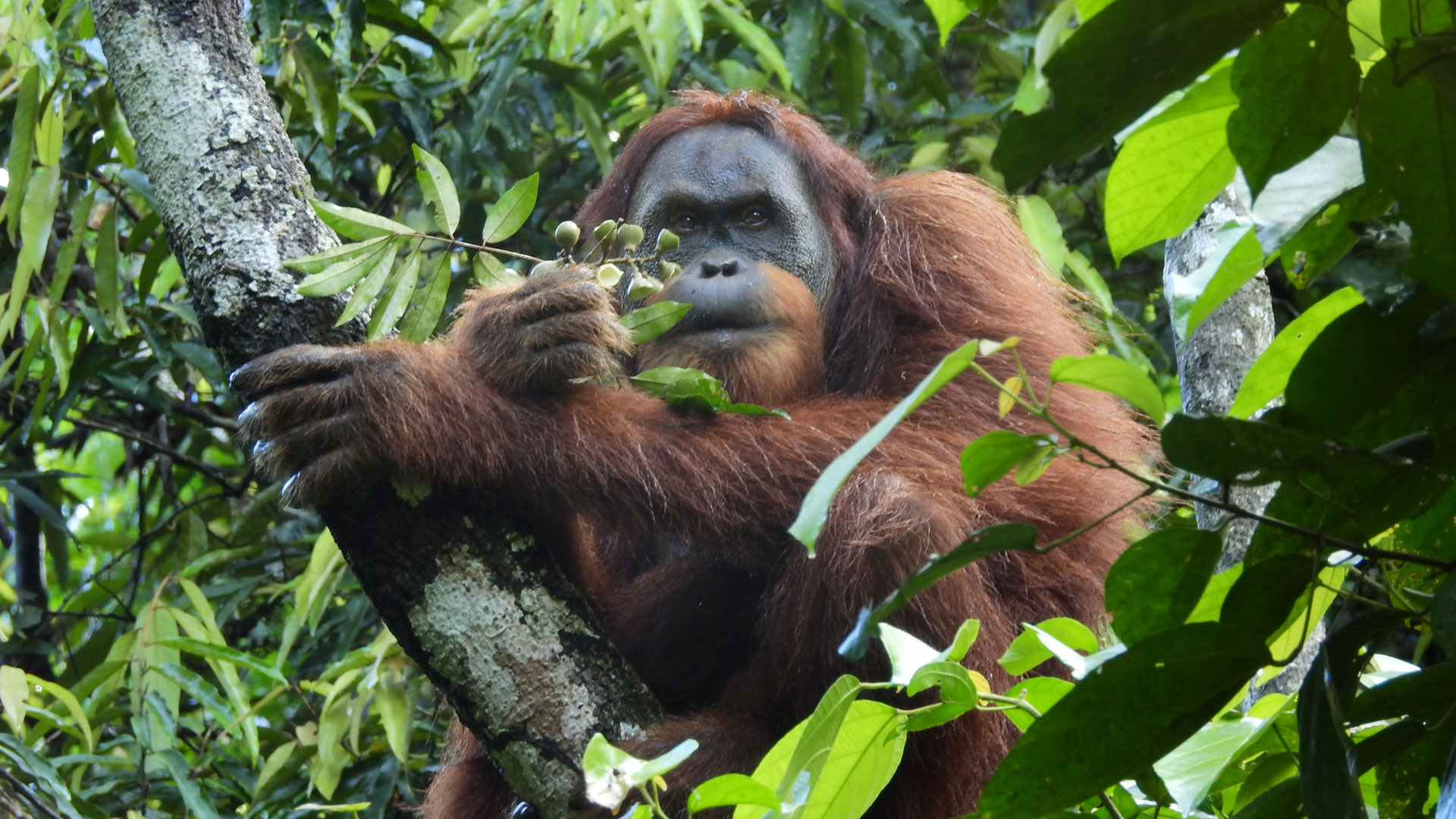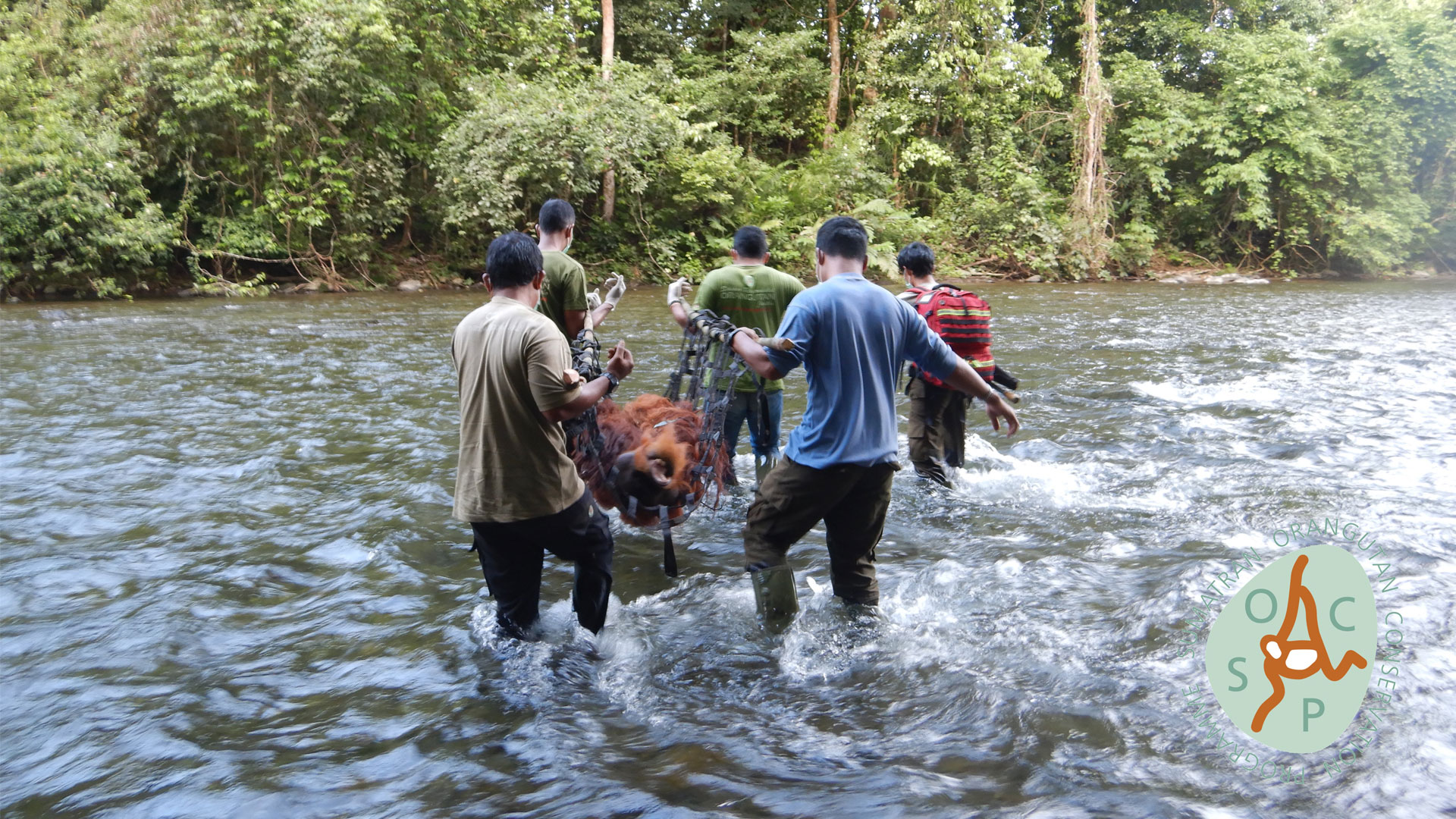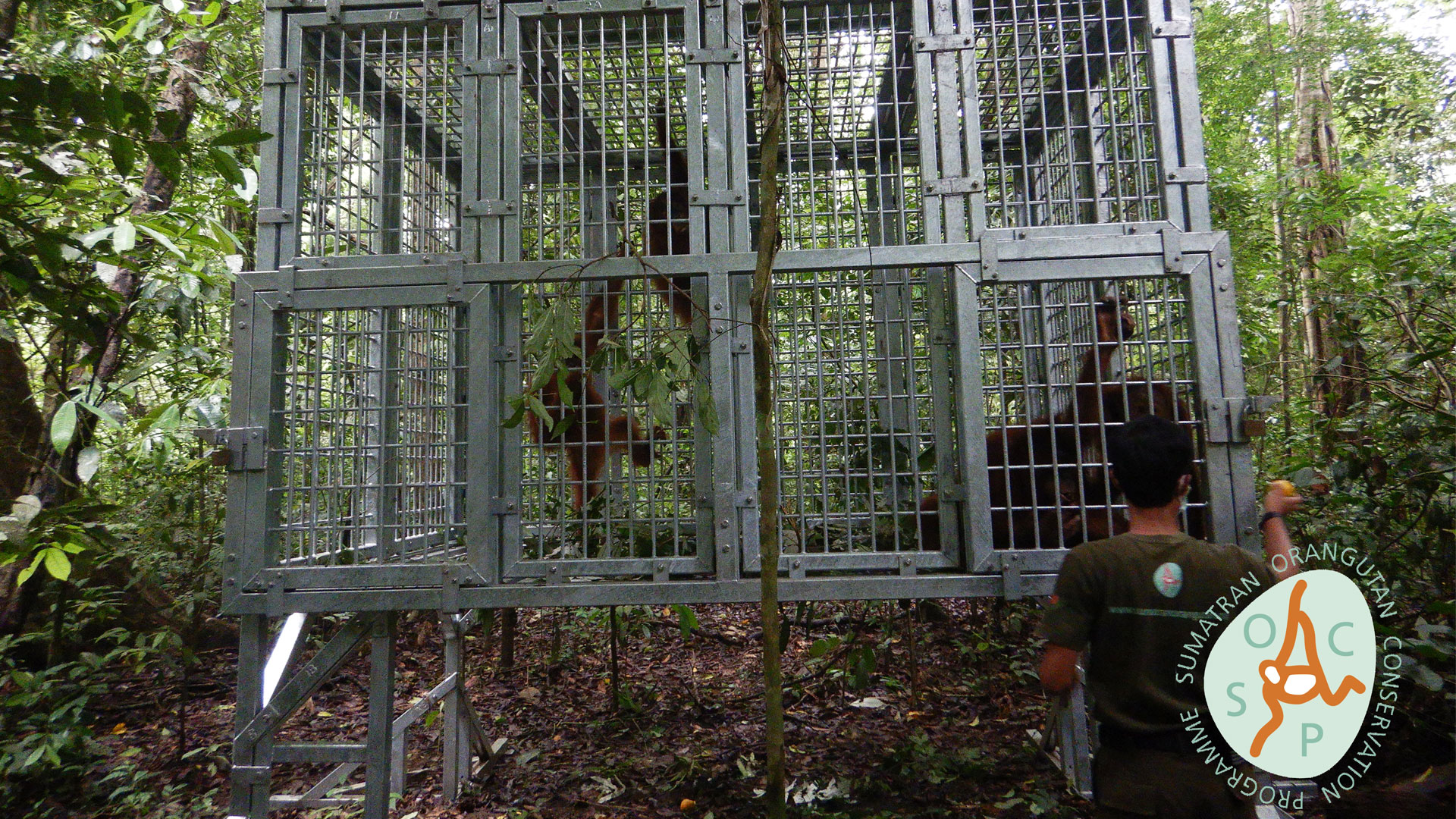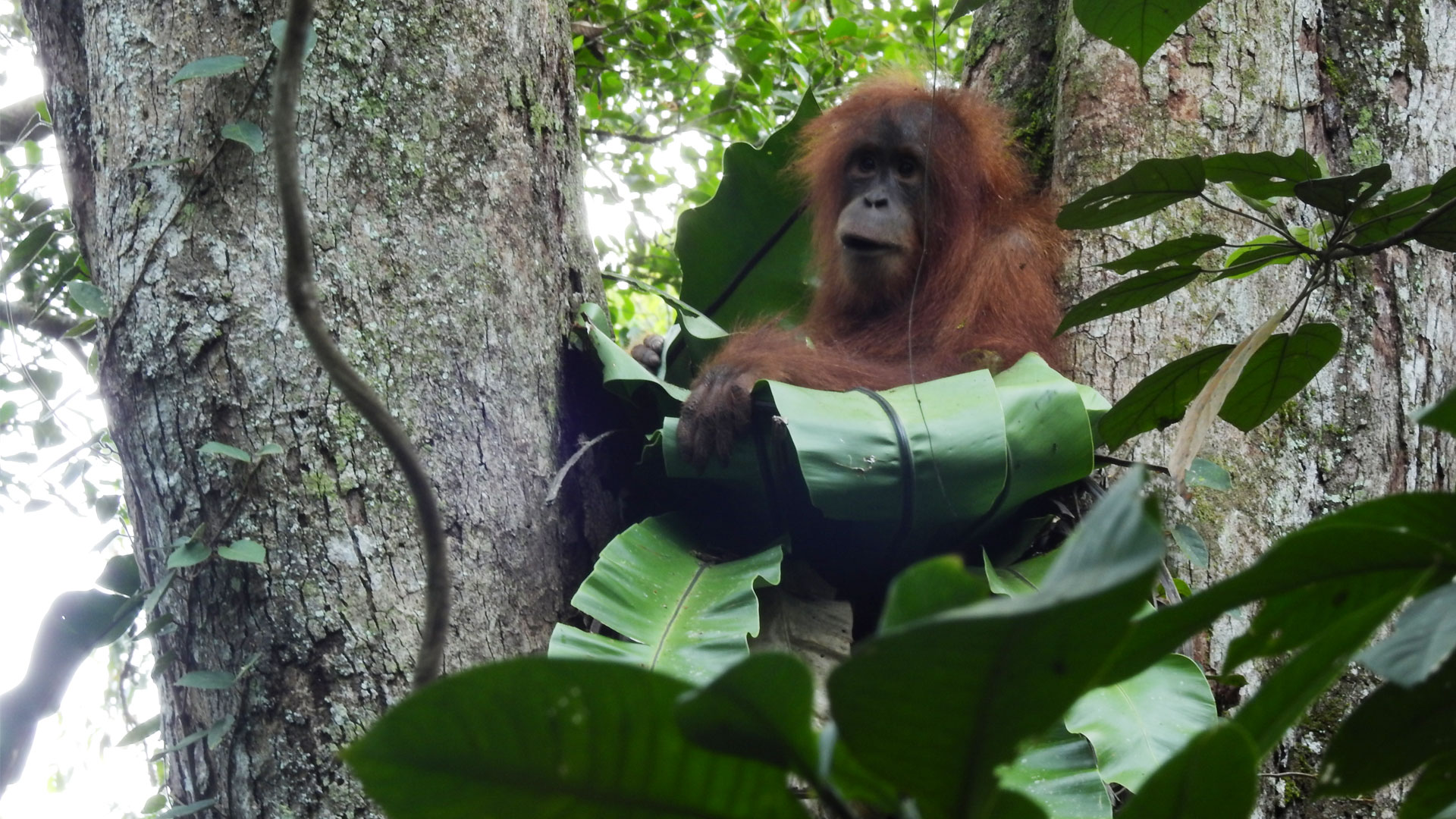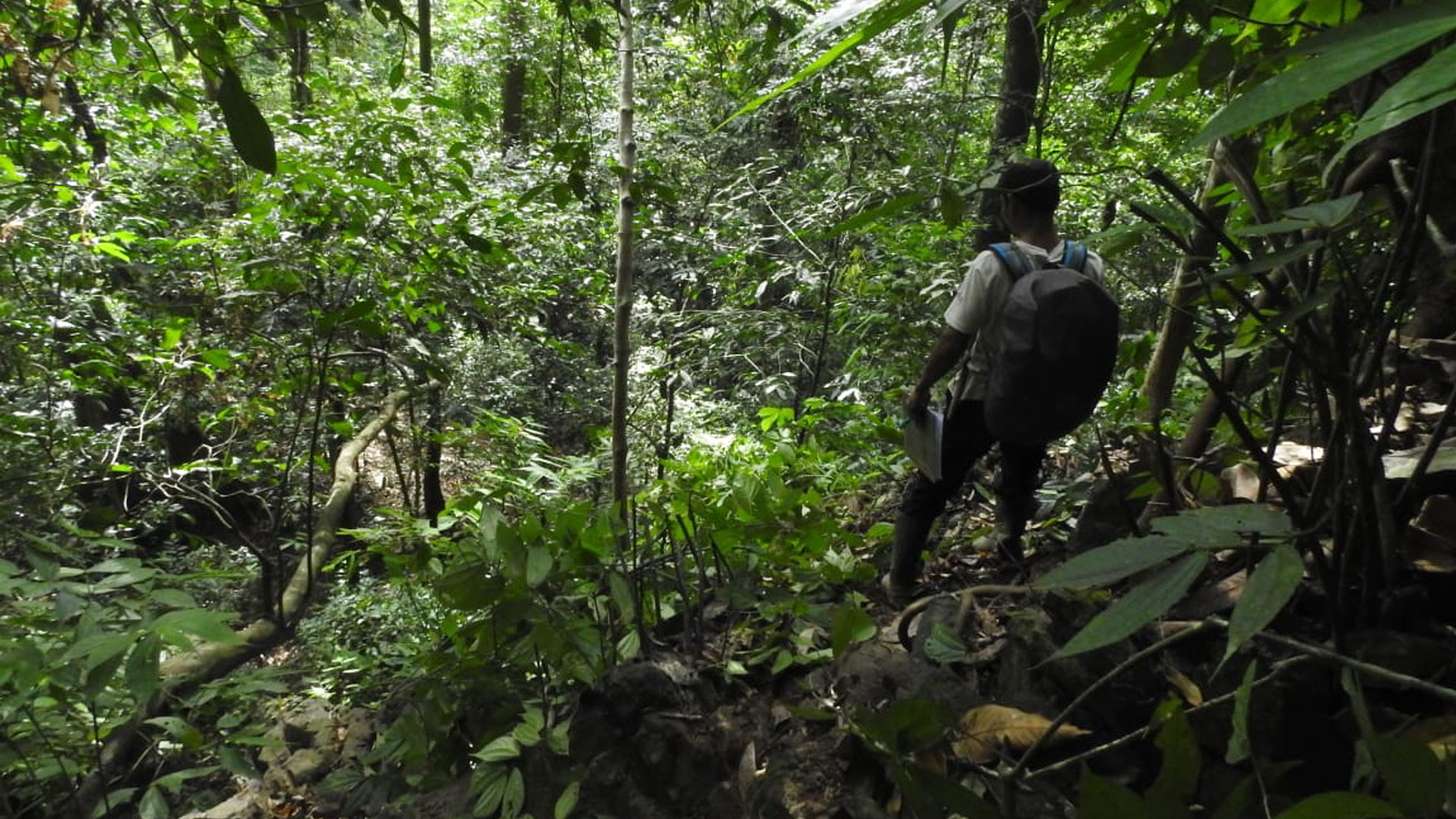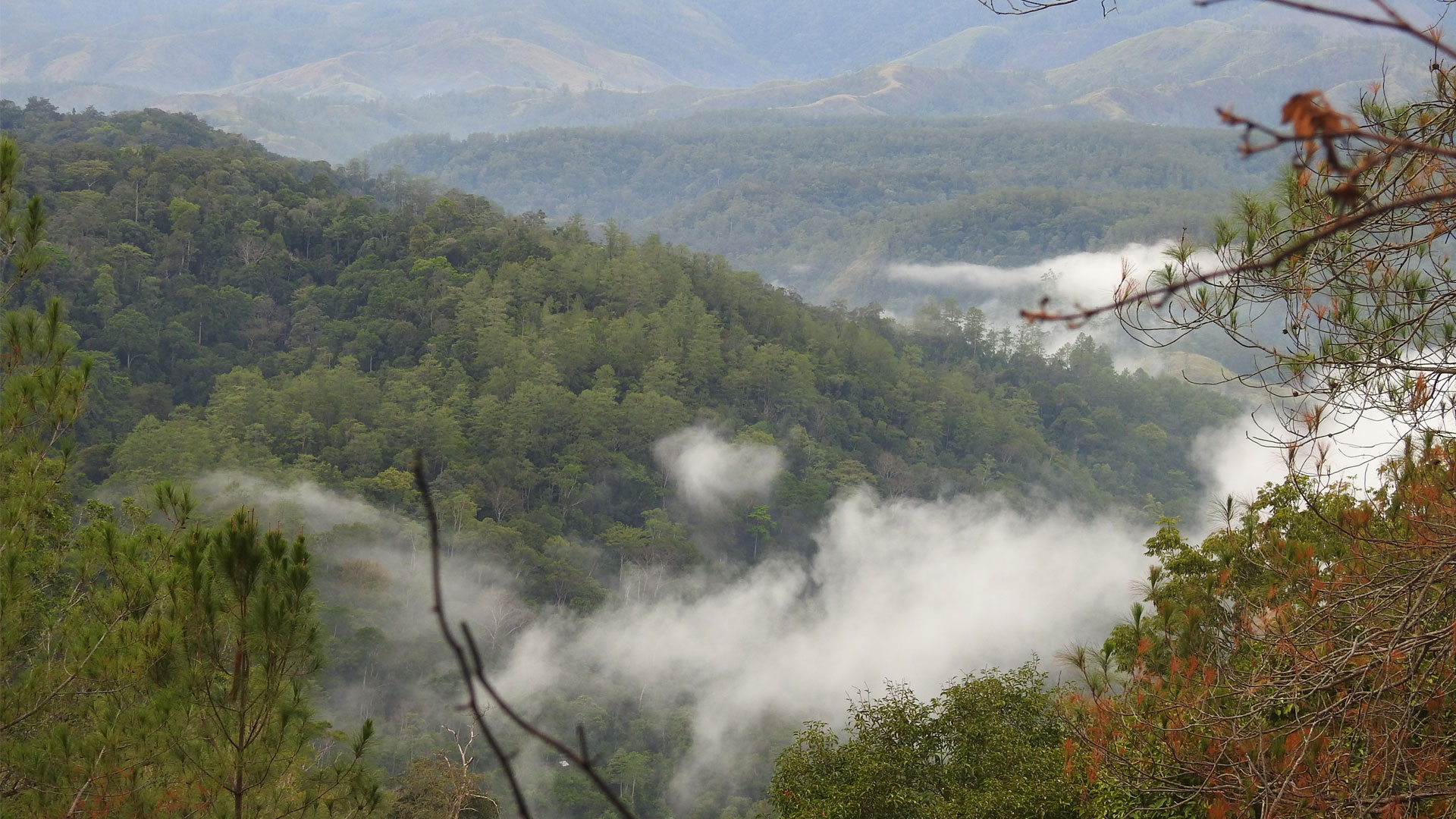Pongky has had a hard life. Ripped from his mother as an infant, he was kept as an illegal pet for over a decade, trapped in a small cage with no access to open space, barely enough room to stand, and a single rope he swung on obsessively. It took an international campaign to get him into the SOCP’s orangutan rehabilitation program, and Pongky has never had the chance to learn any forest skills before. “With big, adult orangutans who have spent a long time in captivity prior to being rescued, rehabilitated and released, it is much harder for them to learn their natural skills again but we are happy to see Pongky making progress in his own way.” Vicky Dauncey, the SOCP’s Programme Development Manager reports, “We are hugely thankful that due to generous support from all our donors we are able to give orangutans like Pongky the chance to be wild again.”
Now that he’s in a natural environment, Pongky is beginning to learn about the world that should have been his all along. “He is able to climb tall trees though he doesn't choose to do so very often.” Vicky says. “When a tree is fruiting he will spend approximately an hour in it, which is less than other orangutans but his preference for natural, forest food has increased… with such intelligent and complex animals as orangutans, all their journeys back to the wild will be different.” Pongky is also beginning to explore further away from the forest school, still dependant on his human rescuers but learning the skills that will one day, at his own pace, let him return to the wild.


